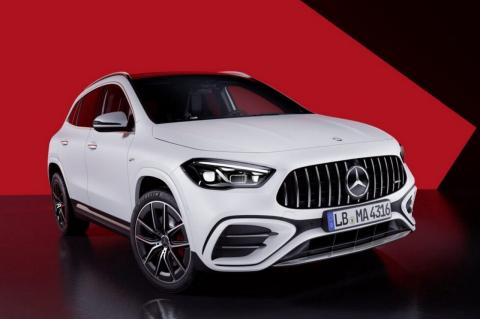It is a prototype of a hydrogen fuel cell heavy truck, developed by a Scottish company, and which will arrive in early 2023.
If there is a sector where decarbonization is urgent, that is transport by heavy vehicles. They represent only 7% of road traffic, but also more than 22% of all CO2 emissions. To counter that, here comes the first hydrogen heavy truck prototype.
We know that the automobile industry is immersed in the transition to the electric car, something that should be effective in 2035, the date set by the European Union to ban combustion engines.
But this transition not only affects the private vehicle, but also land transport. In fact, by the same date, 2035, it is intended to also ban the sale of heavy vehicles, from 3.5 to 26 tons, that emit polluting substances, as well as reduce the sale of polluting vehicles of more than 26 tons in 2040.
Hydrogen in the transport sector
Unlike cars, electric trucks are less efficient, although a significant fleet of trucks and other heavy vehicles powered by purely electric systems is also envisaged in the future.
However, in the transport sector, hydrogen is of interest, especially green hydrogen, which is truly zero emissions.
More specifically, the hydrogen-powered fuel cell technology, which provides sufficient autonomy for long distances, as well as rapid reporting capacity, as required by the transport sector.
In the automotive industry, there are already brands that work with hydrogen, such as Hyundai or Toyota. And now we have the first hydrogen truck that uses the fuel cell.
This is the first hydrogen truck
Responsible for this truck is the Scottish company HVS (Hydrogen Vehicle Systems), based in Glasgow, which has the support of companies such as Innovate UK, Scottish Enterprise and Energy Technology Partnership, and funding from EG Group, which has provided 30 million pounds, about 34.3 million euros.
This company has developed a zero-emission hydrogen fuel cell truck prototype that stands as the forerunner in this category. The truck has been developed from the ground up, based on a bespoke architecture that represents a departure from conventional truck design and offers numerous benefits in terms of driver comfort and visibility.
HVS’s hydrogen truck prototype uses fuel cells and an energy storage system to send electricity to an electric motor that transmits power to the wheels. It also has a KERS energy recovery system to recover energy when braking and during deceleration phases.












